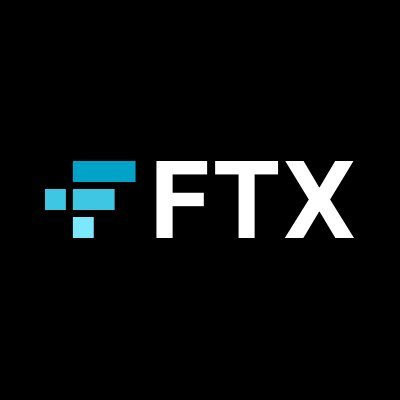FTX's restart brings continuous good news, having established three acquirers, with off-exchange user assets being acquired at half price
Compiled by: Felix, PANews
Since FTX's new CEO John J. Ray III stated in June that FTX "has begun soliciting interested parties to restart the FTX.com exchange," well-known companies including Nasdaq, Ripple Labs, Galaxy Digital, BlackRock, Robinhood, and NYDIG have expressed interest in the FTX 2.0 reboot. Some companies, including BlackRock, have even been contacted and signed non-disclosure agreements to seek more details about the restructuring and the exchange's relaunch.
Five months later, news about the FTX reboot has resurfaced, and some have even begun to "bottom fish." Will it be able to restart, and when? This article takes you on a deep dive.
Establishing Three Candidate Companies
On November 8, the Wall Street Journal reported, citing informed sources, that Bullish, a cryptocurrency exchange operated by Tom Farley, former president of the New York Stock Exchange and owned by Block.one, along with fintech startup Figure Technologies and crypto venture capital firm Proof Group, are competing to acquire FTX.
It is reported that FTX has received interest from over 70 institutions, and the investment bank Perella Weinberg Partners, involved in the bidding process, stated that the list has now been narrowed down to three candidate companies, although the specific names have not been disclosed. The final winner may be selected in mid-December and could restart the exchange after the FTX bankruptcy proceedings conclude next year. Other options being considered include selling the entire exchange, which includes a list of over 9 million customers, or bringing in partners.
The latest disclosed participant in the acquisition, Proof Group, is based in Silicon Valley and has previously invested in crypto startups such as Aptos Labs, Mysten Labs, and Lightspark. Proof Group is part of the Fahrenheit consortium, which successfully bid for the bankrupt crypto lending institution Celsius. According to the bankruptcy filing, as part of Celsius's reboot, Proof Group is establishing a staking platform for the company. Proof Group's founder and managing partner, Noah Jessop, is a former executive at crypto miner Core Scientific. Jessop also previously served as a product manager at the Libra Association.
SEC Chair States Possibility of FTX Reboot
Regarding reports that Tom Farley, former president of the New York Stock Exchange, is one of the bidders for FTX, U.S. Securities and Exchange Commission Chair Gary Gensler stated during Washington Fintech Week that if the new leadership has a clear understanding of the law, then there is a possibility for FTX to restart.
Gary Gensler said, "If Tom Farley or anyone else wants to enter the crypto space, I would say, 'Do it within the bounds of the law.' It is necessary to build trust with investors regarding what you are doing, ensure proper disclosures, and make sure that business operations are not mixed up. Or that customer crypto assets are not used for personal purposes."
When FTX filed for bankruptcy a year ago, it transferred customer funds to the hedge fund Alameda Research. Alameda was the market maker for the FTX exchange and received privileges, including a $65 billion credit line without collateral and the ability to have negative balances in its trading bets without liquidating its positions.
Gensler stated, "We would never allow the New York Stock Exchange to also operate a hedge fund and trade with its members or with customers in the market," emphasizing that existing securities laws are "very sound and robust." They just need to be enforced. "There is nothing about crypto that is inconsistent with securities laws. Currently, there are many participants globally who are not complying with these time-tested laws."
Rumors of 50% Acquisition of "Bad Assets"
With many well-known institutions competing for acquisition and the SEC chair's comments, the likelihood of an FTX reboot is increasing. Many in the community are also circulating rumors that there are off-market offers to acquire personal asset claims within FTX at half price, and there are reports that FTX may compensate at a 50% rate based on the price on the day of the bankruptcy filing on November 11, with a fee of about 5%.
Regarding the off-market trading format, some acquirers have explained that transactions will depend on factors such as whether the creditor is an individual or a company, the number of accounts, whether there is a creditor ID, and the net withdrawal amount in the ten days before the collapse, with a 50% acquisition price. Additionally, a 5% fee will be charged, and buyers will be sent a letter of intent and authorization.
After obtaining the Kroll* (FTX's bankruptcy claims agent) customer number and understanding the withdrawal and deposit situation in November, a price will be provided, and a pricing confirmation letter will be sent. Once the pricing is agreed upon, the transaction will begin. The transaction requires the creditor's claim proof, withdrawal, deposit, ID, address proof, and a brief video call, and after completing this work, a final agreement will be sent. Once signed, funds will be released.
Affected by this news, according to CoinGecko data, FTX's platform token FTT rose to $2.27 within 24 hours, an increase of 80%.
Although a reboot seems promising, it is not an easy task, as there are still many variables in the FTX bankruptcy case. The reboot must address various aspects such as claims, token lock-ups, and compliance issues, making the process complex. Bankruptcy expert and founder of 117 Partners, Thomas Braziel, noted that the bankrupt crypto lending institution Voyager attracted many hopeful bidders who wanted to restructure the company and offer tokens to creditors, but ultimately it was futile, providing a precedent for the challenges of rebooting FTX.
Of course, aside from the reboot, FTX is also considering other options, including selling the entire exchange and its list of over 9 million customers or bringing in partners. How this will unfold is still uncertain, but the investment bank Perella Weinberg Partners, responsible for handling FTX's bankruptcy matters, stated that FTX is expected to make a decision before mid-December.
It is worth noting that FTX is actively selling assets. On November 6, FTX and its creditors filed a motion with the Delaware bankruptcy court seeking approval to sell approximately $744 million worth of Grayscale and Bitwise trust assets through an investment advisor. This move aims to prepare for the upcoming monetization distribution for creditors and allows FTX to quickly sell these trust assets at the appropriate time. Additionally, by establishing a pricing committee, all stakeholders will have representation to alleviate the costs and delays associated with selling each asset individually.














